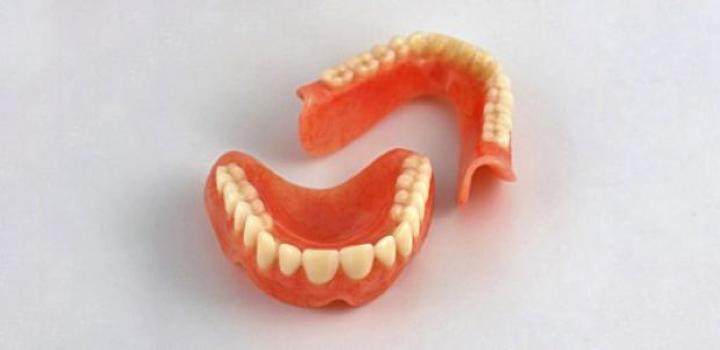I have been a long time patient of Dr. McCrea and have found him to be an amazing doctor. I first started going to Dr. McCrea in my teens through my parent’s health insurance. After my health insurance changed I went to a few horrible dental practices until finally I was able to come back to Dr. McCrea’s practice.During my years with his practice I’ve had the following procedures done:...
The Removable Option for Tooth Replacement
If you’ve lost natural teeth, whether from gum disease, tooth decay or injury, replacing the missing teeth will greatly benefit your appearance and your health. Dentures and partials can replace your missing teeth and help restore your smile. When you lose teeth, facial muscles can sag, making you look older. Chewing becomes more difficult and the remaining teeth are worked harder than they should be. Overloading your remaining teeth can shorten how long you get to keep them. Dentures can help fill out the appearance of your face and profile. They can either be made to closely resemble your natural teeth so that your appearance does not change much or if your natural teeth were in poor shape they can be made to enhance your smile.
Maintaining even a few teeth can make a huge difference in how you function.
Dentures have come a long way since George Washington's time. One thing that hasn’t changed is level of artistry and skill required to make them. Dr. McCrea has been in practice since 1990 and has made many dentures. We can discuss what can be done to make your existing or new dentures fit better. Denture fit changes over time as supporting bone changes.
Denture success is about degrees. Sometime a little adjustment make a huge difference in your comfort and ability to eat. If you are dissatisfied with your denture fit let's see if there is something that can be done to improve it.
Dentures can pose challenges. If you are having an immediate denture (remaining teeth extracted and will wear denture out the same day) done, there are several steps before the denture is finally ‘fitted’. From the time the teeth are removed to final healing takes about six months. During that time soft reline material is used to keep the denture fitting as well as possible. At about six month healing time the gums are about 90% done healing and shrinking. At this time it makes sense to replace the soft reline material with more durable acrylic. Even then this reline is not a ‘permanent’ solution. Most denture wearers will need their denture relined again in 3-5 years. This process generally needs to be repeated every three to five years after that.
Denture fit changes over time. They have to be maintained to fit well.
There are things we can do to help keep an existing denture working for you. They can be relined, have the bite adjusted, have the length adjusted if changes in the jaws have allowed the denture to "settle". Today we have semi-permanent soft liners and implants to help them be more comfortable and to make them more retentive. If the denture is old and worn enough sometimes the best choice is to make a new set.
Denture success is about degrees.
-
Maintaining the fit to the gums helps hold the denture in place and avoid sore spots.
-
Maintaining the correct height improves your chewing strength. Height of the supporting ridge changes over time. The denture in effect becomes “short” for your mouth.
-
Replacing worn teeth. We see people wearing dentures that have become worn flat. These dentures have two problems, mechanically they don’t provide an abrasive surface to chew food, and they have reduced the height and strength of chewing.
- Anchoring the denture. Using dental implants provides stability that even the best fitted denture can’t achieve.
Dr. McCrea can talk to you about upgrading to an implant supported lower denture. It can be a great option for you. Even adding two implants to help retain your lower denture in place makes a huge difference. If you have been a denture wearer for some time the ridge that supports the denture and helps you keep your denture in place has likely changed and shrunk. That means it probably moves around more. You might be compensating by using more and more denture adhesive.
Whether you are getting a denture or partial for the first time or are replacing worn ones, or looking to upgrade to implants you can count on Dr. McCrea do his best to help you get eating well and looking great.

